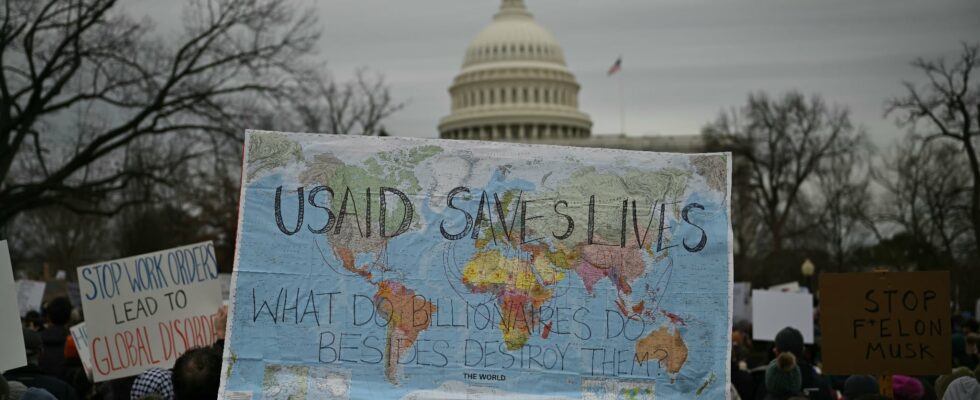They had been preparing for months, even years. At the end of January, the brilliant consortium, a consortium of researchers from eight African countries should have launched a clinical trial of two experimental HIV vaccines. For their experimentation are volunteers from South Africa, Kenya and Uganda ready to give their time, and their bodies, for science. The project was launched. He was about to succeed.
But shortly after January 20, a decree signed by Donald Trump, frozen all international assistance from the development agency. Worse, on February 3, Elon Musk announced the official closure of the USAID, definitively jeopardizing international scientific research and leaving volunteers of dozens of clinical trials cut off from researchers who were monitoring them. “It would be contrary to the ethics of starting a study that you are not sure to be able to continue,” said Glenda Gray, South African doctor who directs the Brilliant Consortium, with Science.
More than 30 frozen clinical trials
This consortium of researchers is not the only one to be affected. On the contrary. The daily The New York Times identified more than 30 clinical trials that have been frozen, and whose volunteers had already been taken care of by researchers. Among them: the treatment of malaria in children under the age of five in Mozambique, a method of screening and treatment of cervical cancer in Malawi, or, the treatment of cholera in Bangladesh and tuberculosis in Children and adolescents in Peru and South Africa.
In England, for example, a hundred people were vaccinated against malaria as part of two clinical trials. Problem: they no longer have access to study researchers, who have received the order, by the American authorities, to stop their research. If the trial had not been frozen, the participants would have come to a clinic regularly to be followed, in order to detect possible adverse effects and check the effectiveness of the vaccine.
For the time being, it is still difficult to know the total number of interrupted clinical studies or the number of people concerned since the expeditious dismantling of the USAID has erased public archives.
An ethical dilemma
Since February 7, all of the USAID staff has been placed on administrative leave, with a few exceptions. Employees assigned abroad will be repatriated within 30 days. According to the New York Timesmany scientists have described the dilemma which is now presented to them: rape the order of work stoppage and continue to take care of the volunteers of the clinical trials, or leave them alone in the face of side effects and risks.
To justify his abolition, the US Secretary of State Marco Rubio argued that foreign aid expenses did not support the objectives of the United States and that USAID defended a liberal program that went against of President Donald Trump’s foreign policy.
However, some scientists remain optimistic and count on the legal challenges of the American president’s actions so that their projects can resume in the weeks or months to come. “The Congress established USAID as an independent establishment in the executive power, the president does not have the power to dismantle, move or consolidate USAID”, reassured the research service of the research service Congress.
